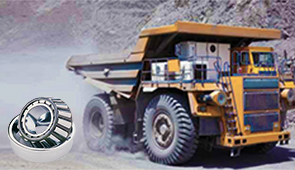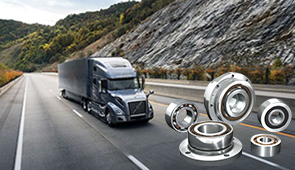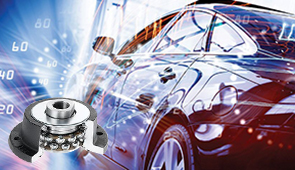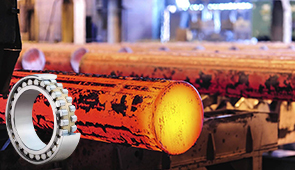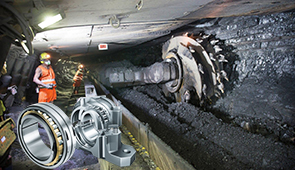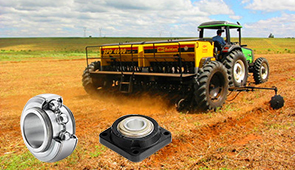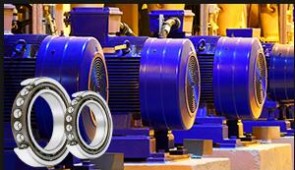how to tell if a wheel bearing is bad
There are a few signs that can tell you when a wheel bearing is bad.
If your car is making loud noises and vibrating when you drive, then this could be an indication that a wheel bearing has gone bad. The noise will generally sound like rubbing or grinding and may come from just one side of the vehicle.
If your car pulls to one side when driving, then this could be another sign that a wheel bearing is going bad. The pull may be very slight or it may be more noticeable, depending on how bad the problem is and how worn out the bearings are.
If there is excessive tire wear on one side of the vehicle, then this may also be an indication of a problem with your wheel bearings. There could be other causes for this, but it’s worth checking out if you notice this happening with your vehicle.
There are several tell-tale signs of a bad wheel bearing, including noise and vibrations.
If you’re hearing a grinding or clicking sound in the front end of your vehicle, it’s possible that one or more wheel bearings are bad. This can also be accompanied by a wobble in the steering wheel and a vibration when you drive over bumps.
If you suspect that a wheel bearing is bad, there are several tell-tale signs to look for:
Loud clunking or rattling noises when going over bumps or potholes. This can be caused by loose wheel bearings, which allow excessive movement of the hub assembly and axle shafts, as well as excessive movement between the hub assembly and brake rotor. It can also occur if there’s too much play between the brake rotor and hub.
Vibrations while driving over bumps or potholes. A rough ride could indicate that your car has worn-out suspension components or strut mounts that need to be replaced. If you experience vibrations only during braking or accelerating, however, it could mean that there’s a problem with your disc brakes or calipers.
Listen for grinding, squealing, or growling noises.
When a wheel bearing is bad, it can cause your car to make some strange noises.
If you hear any of these sounds, take your vehicle in for service right away.
Grinding or squealing when you turn the steering wheel. If a car has bad bearings, it might make a grinding sound as you turn the steering wheel left and right. You may also notice a squealing noise from under the car when you turn the wheel.
Growling or grinding noises when driving over bumps. If one of your vehicle’s front wheels has worn out bearings, it could make growling or grinding noises as you drive over bumps in the road. This usually happens at speeds over 30 miles per hour (mph).
A “thumping” noise when going over bumps at low speeds. A bad bearing might cause this type of thumping noise as well as a vibration when driving over bumps at speeds lower than 30 mph (48 kph).
Look for abnormal tire wear.
If you see uneven tread wear on the tires, this could be a sign that something is wrong with the wheel bearings.
Look at the shape of your tires. If you notice that one side of the tire is wearing faster than the other side, this might be a sign that something is wrong with your front end or rear end alignment. You can also check your front end alignment by pulling out on each side of your vehicle to see if it pulls forward when doing so.
Listen for any unusual noises coming from inside your vehicle as well as outside of it when you’re driving around town or on the highway. If you hear grinding or squealing noises coming from one side of your vehicle, this could mean that there’s something wrong with either your brakes or wheels.
Feel for vibrations and shakiness when accelerating or braking.
Wheel bearings are a common source of noise, vibration and shudder in a vehicle. The most common type of bearing is a ball-bearing unit, which has steel balls that roll between two races (steel rings) to reduce friction. Because they are exposed to dirt, moisture, water and other contaminants, ball bearings are often the first part to fail in a wheel assembly.
When you feel for vibrations or shakiness when accelerating or braking, this may indicate bad wheel bearings. Another symptom is a clicking sound when you turn your steering wheel from lock-to-lock. If you hear this type of noise from your front wheels, it could be caused by the steering knuckle or strut rod bushings wearing out prematurely.
Check your mileage.
A bad wheel bearing can make your car vibrate, which isn’t good for your tires or suspension. But even if you don’t notice the vibration, it’s still time to replace the bearing.
The easiest way to tell is by checking your mileage. If you haven’t hit 100,000 miles yet, but are still hearing noises like grinding or clicking from behind your wheels, then chances are that one of your bearings is going bad.
Wheel bearings are critical components to the operation of any vehicle so it is important to be aware of the signs that they may be in need of maintenance or replacement.
The most common symptoms of wheel bearing failure include:
A humming or grinding noise while driving at speeds above 40 mph. This may be a sign that your wheel bearings have begun to fail and need to be replaced.
A rough ride, especially over bumps and dips in the road. This can also indicate that your wheel bearings are failing, but it could also be caused by other factors including worn shock absorbers or struts.
Excessive tire wear on one side of the vehicle. This is another symptom typically associated with wheel bearing problems as uneven tire wear can result from a bent wheel or poor alignment that causes unbalanced forces on each side of the vehicle.
As you can see, it is not that difficult to tell if a wheel bearing is bad. By simply observing the symptoms, and following the five steps to diagnosis, you should be able to tell if you need to repair a wheel bearing or if they are just fine.
UCTH213-40J-300 with Setscrew(inch)
CNSORDERNO: Normal-duty(2)
TOGN: UCTH213-40J-300
SDI: B-R1/8
SD: 2 1/2
UCTH212-39J-300 with Setscrew(inch)
CNSORDERNO: Normal-duty(2)
TOGN: UCTH212-39J-300
SDI: B-R1/8
SD: 2 7/16
UCTH212-38J-300 with Setscrew(inch)
CNSORDERNO: Normal-duty(2)
TOGN: UCTH212-38J-300
SDI: B-R1/8
SD: 2 3/8
UCTH212-36J-300 with Setscrew(inch)
CNSORDERNO: Normal-duty(2)
TOGN: UCTH212-36J-300
SDI: B-R1/8
SD: 2 1/4
UCTH211-35J-300 with Setscrew(inch)
CNSORDERNO: Normal-duty(2)
TOGN: UCTH211-35J-300
SDI: B-R1/8
SD: 2 3/16
UCTH211-34J-300 with Setscrew(inch)
CNSORDERNO: Normal-duty(2)
TOGN: UCTH211-34J-300
SDI: B-R1/8
SD: 2 1/8









